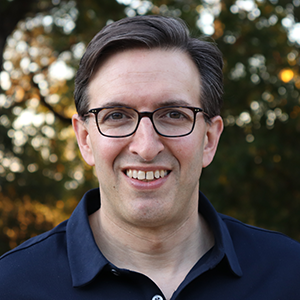Why this is a Big Deal? As we know, private insurers follow suit once Medicare makes a decision such as this. This portends well for genetic testing to become routine standard of care for patients with advanced cancers.
“Insurance coverage should precede rather than follow clinical validation of broad genomic testing in oncology. More extensive testing of cancer patients during the course of care would do more than improve treatment selection for those patients. The information gathered from testing, linked to knowledge of the clinical course of patients with a variety of neoplastic diseases and assembled into well-designed databases, could also change diagnostic categories, improve the accuracy of prognosis, and provide guidance for treatment of patients with similar profiles.”
–Rebecca Eisenberg and Harold Varmus December 1, 2017 Science, Policy Forum
Rebecca Eisenberg will present at PMWC 2018 Michigan during the “Economics and Socio-Political Aspects of Precision Medicine” session – Program.
Starting now, CMS (Centers for Medicare & Medicaid Services) will cover the costs of cancer gene tests that have been approved by the Food and Drug Administration. At this point the CMS will only cover these tests for patients with Stage 3 and 4 cancer. In addition to tracking outcomes, this testing will generate large volumes of genomic cancer data.
This data will help Medicare in addition to hospitals and companies who are gathering evidence to validate their own tests. It will also allow pharma companies to fill their targeted treatment trials with “genetically-matched” patients. This data will have a significant impact on better patient care and on the future of precision medicine.
Recently, the FDA made strides in streamlining the development and review pathway for consumer tests that evaluate genetic health risks, approving among others:
- Foundation Medicine’s FoundationOne CDx (F1CDx)
- Thermo Fisher Oncomine Dx Target Test for lung cancer
- Agilent’s GenetiSure Dx tests
- Illumina’s Extended RAS panel cancer companion diagnostic test for colorectal cancer
Healthcare continues to undergo revolutionary changes driven by new technologies and innovations that result in new therapies and significant treatment advancements. At the same time, higher costs associated with these developments heighten the challenge of leveling the playing field as it pertains to Precision Medicine for all. We can’t lose sight of our goal to bring these treatment options to all patients as we reshape medicine.
Relevant reimbursement topics will take center stage in the Day 1, afternoon session at PMWC 2018 Michigan, June 6 and 7, 2018, “The Economics and Socio-Political Aspects of Precision Medicine”. Contributing experts include:

Steve Nelson
CEO, United Healthcare

Amir Dan Rubin
CEO, One Medical

Rebecca Eisenberg
Professor of Law, University of Michigan
Join us for this highly relevant session with leading experts across the industry!
The Precision Medicine World Conference (PMWC), in its 17th installment, will take place in the Santa Clara Convention Center (Silicon Valley) on January 21-24, 2020. The program will traverse innovative technologies, thriving initiatives, and clinical case studies that enable the translation of precision medicine into direct improvements in health care. Conference attendees will have an opportunity to learn first-hand about the latest developments and advancements in precision medicine and cutting-edge new strategies and solutions that are changing how patients are treated.
See 2019 Agenda highlights:
- Five tracks will showcase sessions on the latest advancements in precision medicine which include, but are not limited to:
- AI & Data Science Showcase
- Clinical & Research Tools Showcase
- Clinical Dx Showcase
- Creating Clinical Value with Liquid Biopsy ctDNA, etc.
- Digital Health/Health and Wellness
- Digital Phenotyping
- Diversity in Precision Medicine
- Drug Development (PPPs)
- Early Days of Life Sequencing
- Emerging Technologies in PM
- Emerging Therapeutic Showcase
- FDA Efforts to Accelerate PM
- Gene Editing
- Genomic Profiling Showcase
- Immunotherapy Sessions & Showcase
- Implementation into Health Care Delivery
- Large Scale Bio-data Resources to Support Drug Development (PPPs)
- Microbial Profiling Showcase
- Microbiome
- Neoantigens
- Next-Gen. Workforce of PM
- Non-Clinical Services Showcase
- Pharmacogenomics
- Point-of Care Dx Platform
- Precision Public Health
- Rare Disease Diagnosis
- Resilience
- Robust Clinical Decision Support Tools
- Wellness and Aging Showcase
See 2019 Agenda highlights:
- Five tracks will showcase sessions on the latest advancements in precision medicine which include, but are not limited to:
- AI & Data Science Showcase
- Clinical & Research Tools Showcase
- Clinical Dx Showcase
- Creating Clinical Value with Liquid Biopsy ctDNA, etc.
- Digital Health/Health and Wellness
- Digital Phenotyping
- Diversity in Precision Medicine
- Drug Development (PPPs)
- Early Days of Life Sequencing
- Emerging Technologies in PM
- Emerging Therapeutic Showcase
- FDA Efforts to Accelerate PM
- Gene Editing / CRISPR
- Genomic Profiling Showcase
- Immunotherapy Sessions & Showcase
- Implementation into Health Care Delivery
- Large Scale Bio-data Resources to Support Drug Development (PPPs)
- Microbial Profiling Showcase
- Microbiome
- Neoantigens
- Next-Gen. Workforce of PM
- Non-Clinical Services Showcase
- Pharmacogenomics
- Point-of Care Dx Platform
- Precision Public Health
- Rare Disease Diagnosis
- Resilience
- Robust Clinical Decision Support Tools
- Wellness and Aging Showcase
- A lineup of 450+ highly regarded speakers featuring pioneering researchers and authorities across the healthcare and biotechnology sectors
- Luminary and Pioneer Awards, honoring individuals who contributed, and continue to contribute, to the field of Precision Medicine
- 2000+ multidisciplinary attendees, from across the entire spectrum of healthcare, representing different types of companies, technologies, and medical centers with leadership roles in precision medicine












